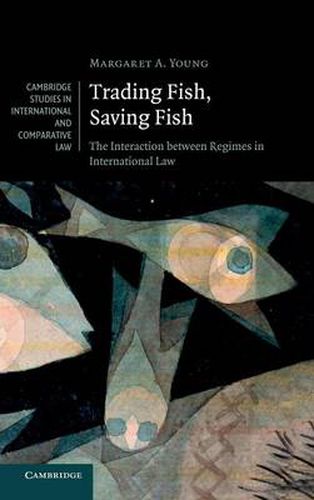Readings Newsletter
Become a Readings Member to make your shopping experience even easier.
Sign in or sign up for free!
You’re not far away from qualifying for FREE standard shipping within Australia
You’ve qualified for FREE standard shipping within Australia
The cart is loading…






Numerous international legal regimes now seek to address the global depletion of fish stocks, and increasingly their activities overlap. The relevant laws were developed at different times by different groups of states. They are motivated by divergent economic approaches, influenced by disparate non-state actors, and implemented by separate institutions such as the World Trade Organization and the United Nations Food and Agriculture Organization. Margaret Young shows how these and other factors affect the interaction between regimes. Her empirical and doctrinal analysis moves beyond the discussion of conflicting norms that has dominated the fragmentation debate. Case-studies include the negotiation of new rules on fisheries subsidies, the restriction of trade in endangered marine species and the adjudication of fisheries import bans. She explores how regimes should interact, in fisheries governance and beyond, to offer insights into the practice and legitimacy of regime interaction in international law.
$9.00 standard shipping within Australia
FREE standard shipping within Australia for orders over $100.00
Express & International shipping calculated at checkout
Numerous international legal regimes now seek to address the global depletion of fish stocks, and increasingly their activities overlap. The relevant laws were developed at different times by different groups of states. They are motivated by divergent economic approaches, influenced by disparate non-state actors, and implemented by separate institutions such as the World Trade Organization and the United Nations Food and Agriculture Organization. Margaret Young shows how these and other factors affect the interaction between regimes. Her empirical and doctrinal analysis moves beyond the discussion of conflicting norms that has dominated the fragmentation debate. Case-studies include the negotiation of new rules on fisheries subsidies, the restriction of trade in endangered marine species and the adjudication of fisheries import bans. She explores how regimes should interact, in fisheries governance and beyond, to offer insights into the practice and legitimacy of regime interaction in international law.